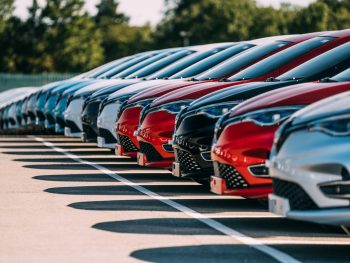Global businesses committed to running 5.5m EVs by end-2030
Over 5.5 million vehicles run by major global businesses will be switched to EVs by the end of 2030, avoiding 86 million tonnes of CO2.
The commitments have been made by global giants such as AstraZeneca, EDF Group and HP Inc through the EV100 initiative run by international non-profit, the Climate Group. It’s amassed a 121-strong membership that’s pledged to making electric transport the new normal by 2030.
Members have already put over 209,000 electric vehicles on the road across their fleets and installed over 20,000 charging points across 3,100 locations in 74 markets, according to today’s newly released 2022 EV100 Progress and Insights Report.
The report also reveals that the UK leads the way with the largest number of corporate vehicles committed, at 90,000, and with committed charging locations at almost 1,000 sites.
But while EV100 members are demonstrating increasing momentum on achieving their fleet electrification target, the report also highlights the three biggest barriers companies encounter on their way to mass EV adoption: a lack of reliable charging infrastructure, the higher up-front cost of EVs and the limited variety of vehicles on the market.
And the report also spotlights the need for supportive policies from state, regional and city governments; 78% of EV100 members believe these are vital to creating the right political climate for systematic change.
In particular, internal combustion engine (ICE) phase-out dates and zero-emission vehicle (ZEV) mandates are needed to help businesses invest in EVs with clarity and confidence.
Sandra Roling, head of transport at the Climate Group, said that the ambition of international businesses to switch to EVs needed to be matched by a wider range of governments, auto manufacturers and businesses across the globe.
“For the EV transition to go further, faster – which it must if we are to limit global temperature rises to no more than 1.5 degrees – charging infrastructure must be built-out and manufacturers must expand production and offer a greater variety of EVs. Governments also need to provide clear direction in the form of phase-out dates and ZEV mandates.”
The EV100 report also highlights key achievements in international markets:
EU: Commitments across the EU now total over 215,000 vehicles, and 30,300 of these are already in operation. A total of 56% of EV100 members with fleets across the EU state that charging infrastructure is a significant issue.
France: Members have so far committed over 50,000 vehicles to electric. EDF has seen the most significant increase in EV deployment with 1,950 cars over the past year. A total of 67% of the EV100 members with vehicles in France stated that the capital cost of EVs remained a significant barrier to further progress, pointing to the need to build further scale in the market.
UK: The UK leads with the largest number of corporate vehicles committed, at 90,000. The UK also leads the way with committed charging locations at almost 1,000 sites. Despite the positive long-term direction of EV uptake in the UK, continued efforts are necessary to ensure the UK maintains its world leading position. For example, 82% of the EV100’s UK-based members say that a lack of charging infrastructure is a ‘significant’ or ‘very significant barrier’ to greater EV adoption in the UK – and Andy Leeden, global fleet manager, AstraZeneca, said that geographical distribution of charging points remains significantly uneven.
US: EV100 members have commitments for over 2 million corporate and leased vehicles, and these companies are already operating over 32,000 EVs across the country.
India: EV100 companies based in India are planning to buy at least 40,000 EVs in 2022 – a huge demand signal from EV100 members to manufacturers and governments across the country. But to deliver on these ambitions, members are clear that supportive policies are needed. 75% of members who have vehicles in India state that an uncertain and underdeveloped policy landscape for EVs is impacting confidence in the transition.


